Junkyard Gem: 1971 Ford Econoline E-300 SuperVan

Ford introduced the Econoline van for the 1961 model year, and its combination of compact size and big load capacity (thanks to a design that put the engine in a “doghouse” between the front seats and the driver in front of the front axle) made it a sales hit. GM and Chrysler copied the Econoline’s layout within a few years (with the ChevyVan and A-100), and American roads of the 1960s buzzed with small-but-sturdy forward-control Detroit vans. Those vans got the job done, but the mid-engined layout proved an evolutionary dead end and Ford moved the engine forward and adopted the F-Series pickup’s front suspension for the Econoline’s 1969 model year. Today’s Junkyard Gem is one of those second-generation Econolines, found in a Denver-area self-service yard.
The passenger version of the Econoline was known as the Club Wagon for most of its life, but the Econoline name proved so memorable that most of us apply it as the generic name for all E-Series Ford vans of the 20th century.
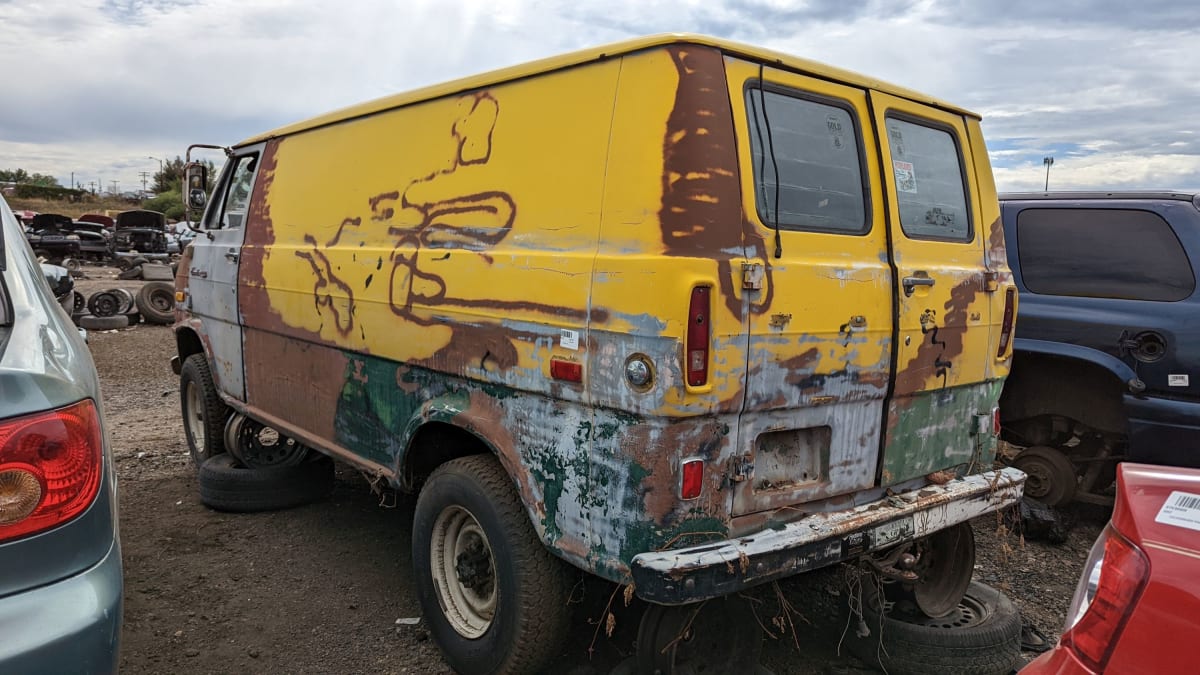
In 1971, the Econoline was available in half-ton, three-quarter-ton, and one-ton versions, with either 105.5″ or 123.5″ wheelbase lengths. This one is the big one-ton, long-wheelbase monster, known as the E-300 SuperVan.
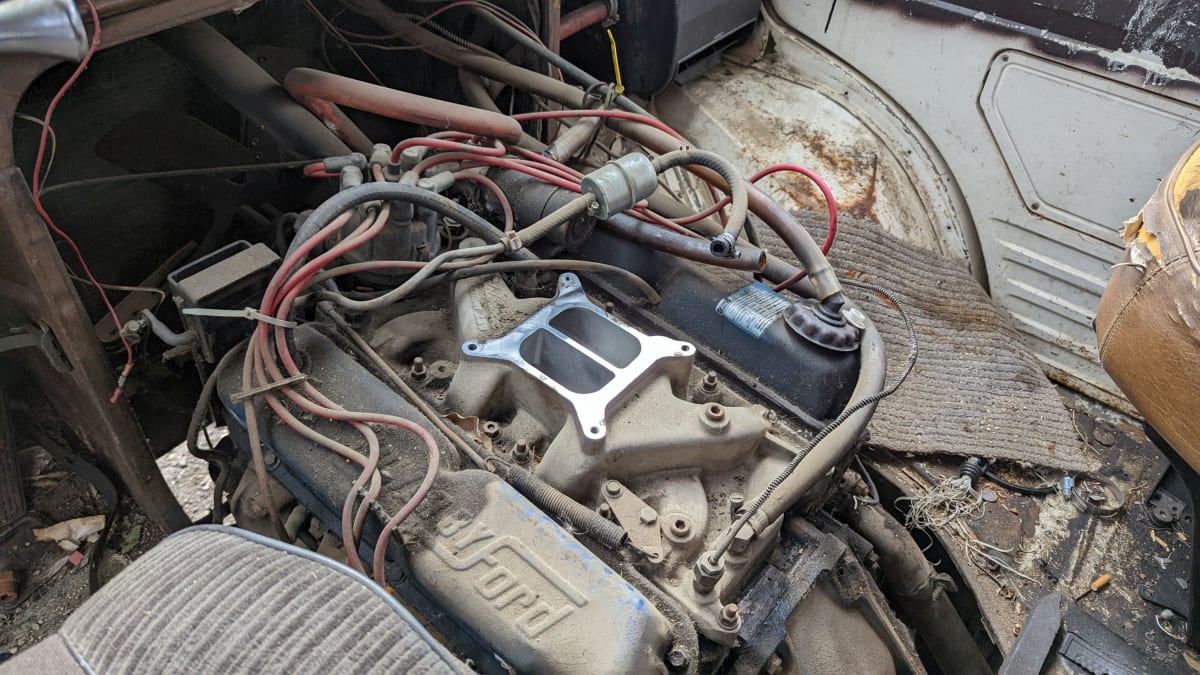
The engine still lived well back and under a doghouse between the front seats, but most of it was forward of the front axle and the driver’s knees had a bit more distance from the outside world. Starting in 1975, the Econoline got a much longer snout and a genuine body-on-frame design instead of the loosely-related-to-the-Falcon chassis of earlier years.
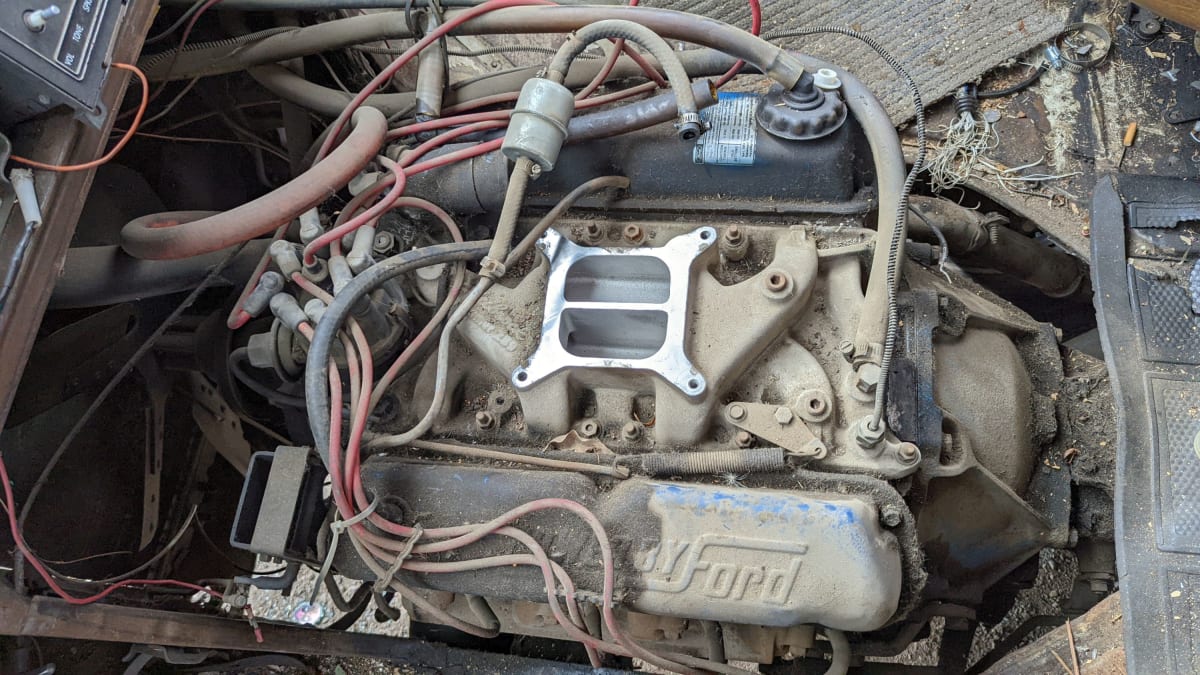
The build tag for this van was long gone, so there’s no telling what its original engine might have been. This one is a member of the Windsor V8 family, probably a 289 or 302, and it’s probably the third or fourth mill to have powered this van during its half-century on the road. The base engine in the 1971 E-300 was a 240-cubic-inch straight-six rated at 150 horsepower, with a 302-cubic-inch V8 as the only engine upgrade available.
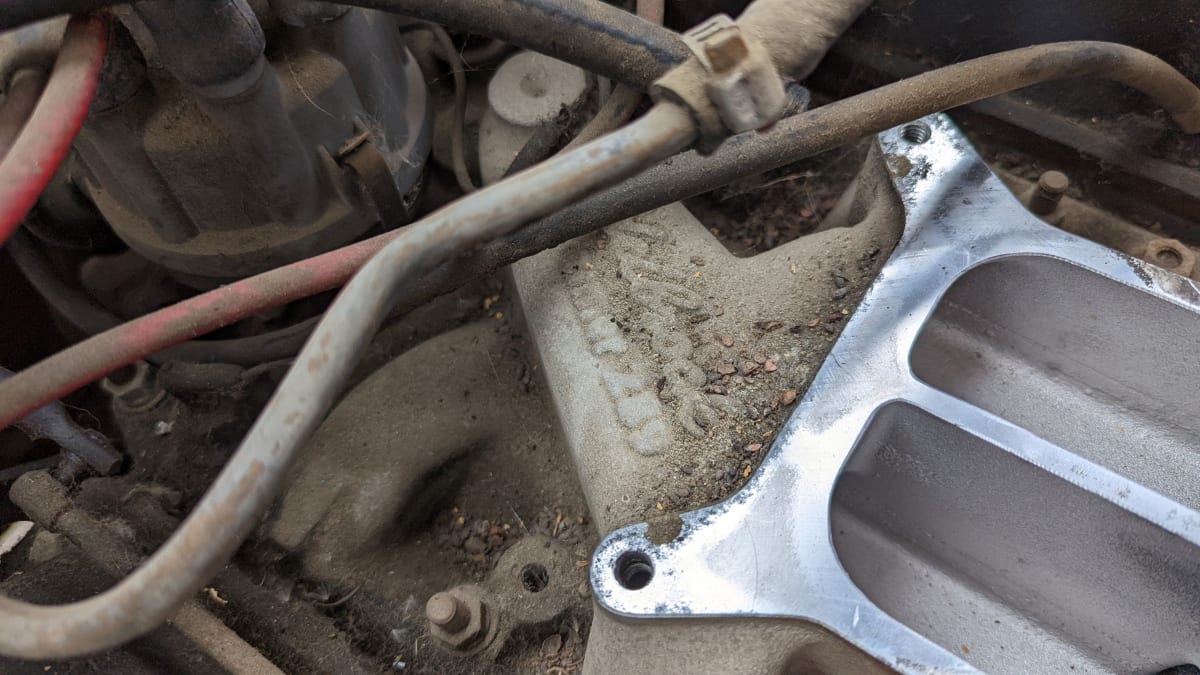
There was a time when this Edelbrock Performer aluminum intake manifold would have been grabbed instantly by the first junkyard shopper to spot it, but those days are long past. At least someone snagged the presumably aftermarket carburetor right away.
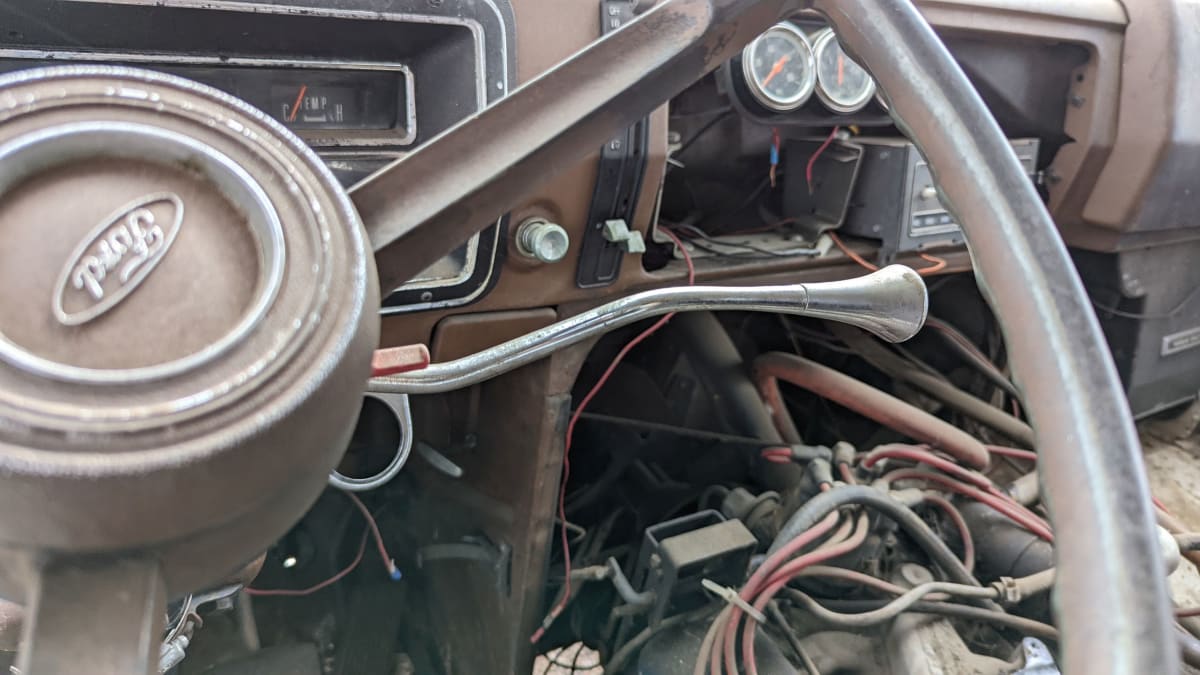
You had exactly two transmission choices on the 1971 Econoline: a three-on-the-tree column-shift manual or a three-speed column-shift automatic. This van has the manual.
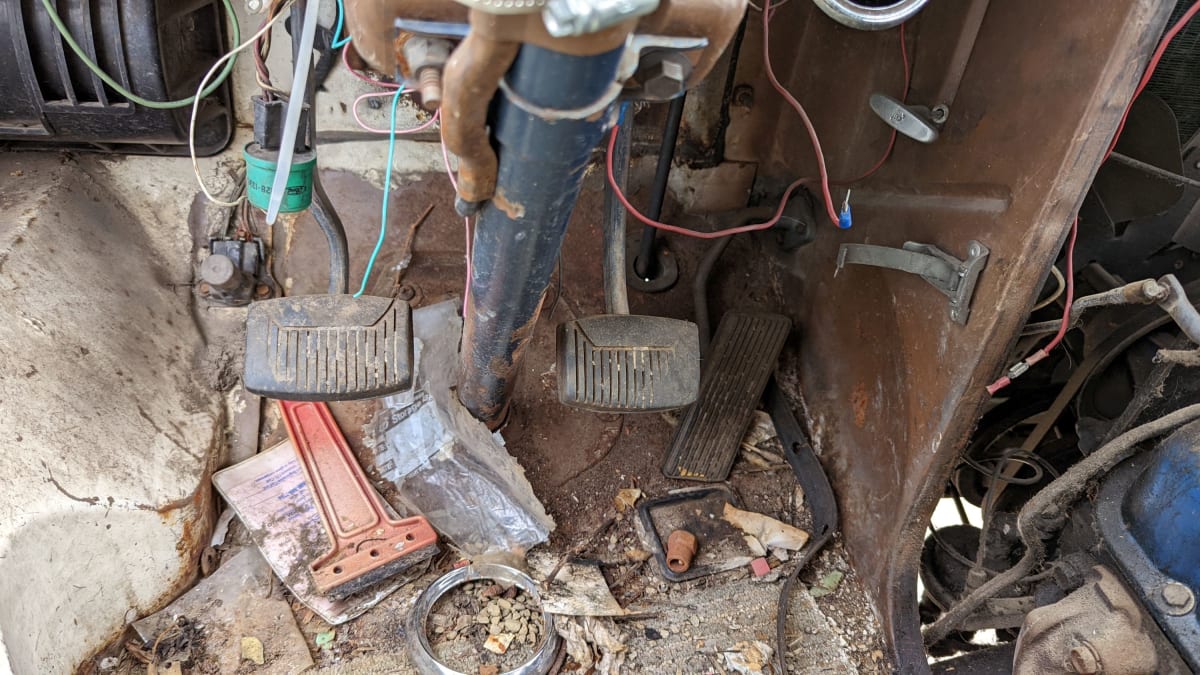
Three-on-the-tree vans were available new in the United States through 1987, though Ford stopped making them a couple of years earlier. Even by the standards of the early 1970s, the V8/manual combination was unusual in new vans; if you could afford the V8, you could afford the slushbox to go with it. Later in the decade, new Detroit vans with manual transmissions became extremely rare, though I do find the occasional oddball three-pedal machine.
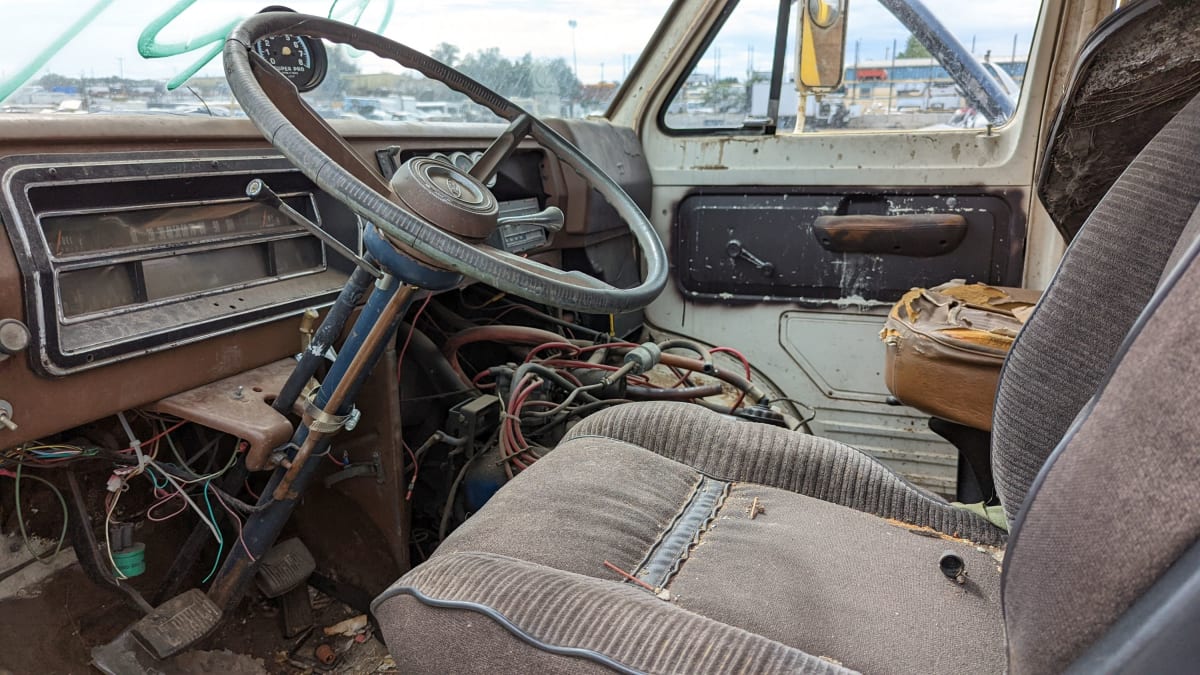
This van worked and worked and then worked some more. How many junkyard driver’s seats have been swapped in during its life? Maybe it got a new seat each time it got a new engine.
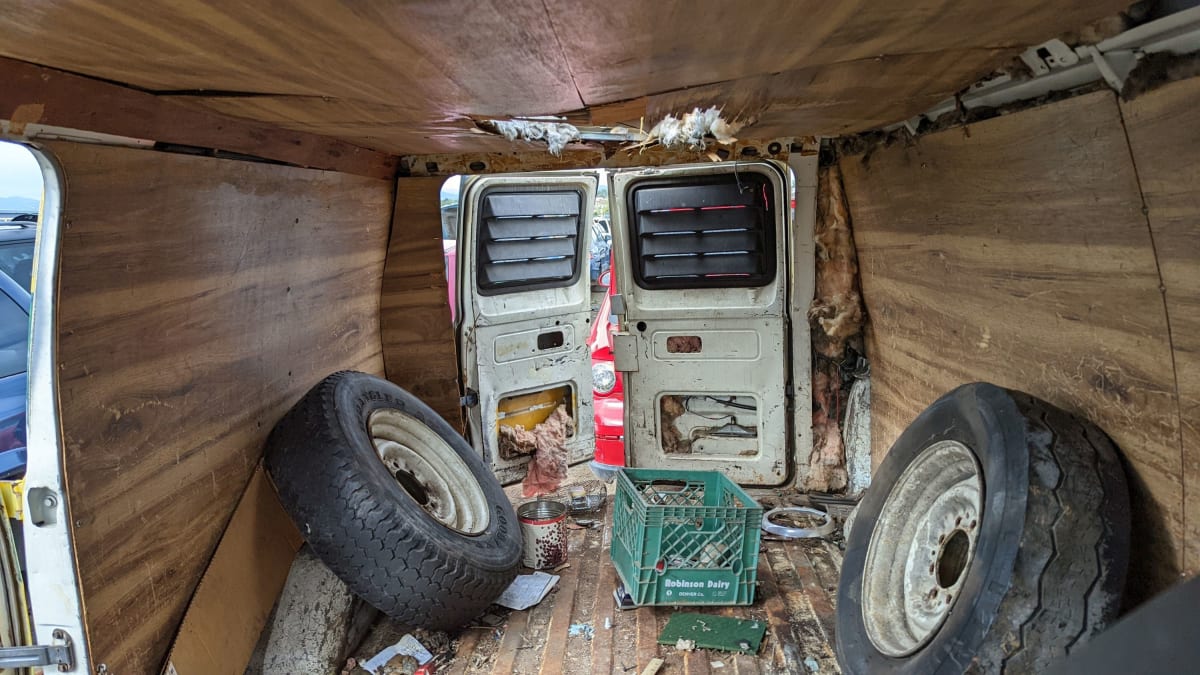
At some point many years ago, it got fiberglass insulation and some wood paneling.
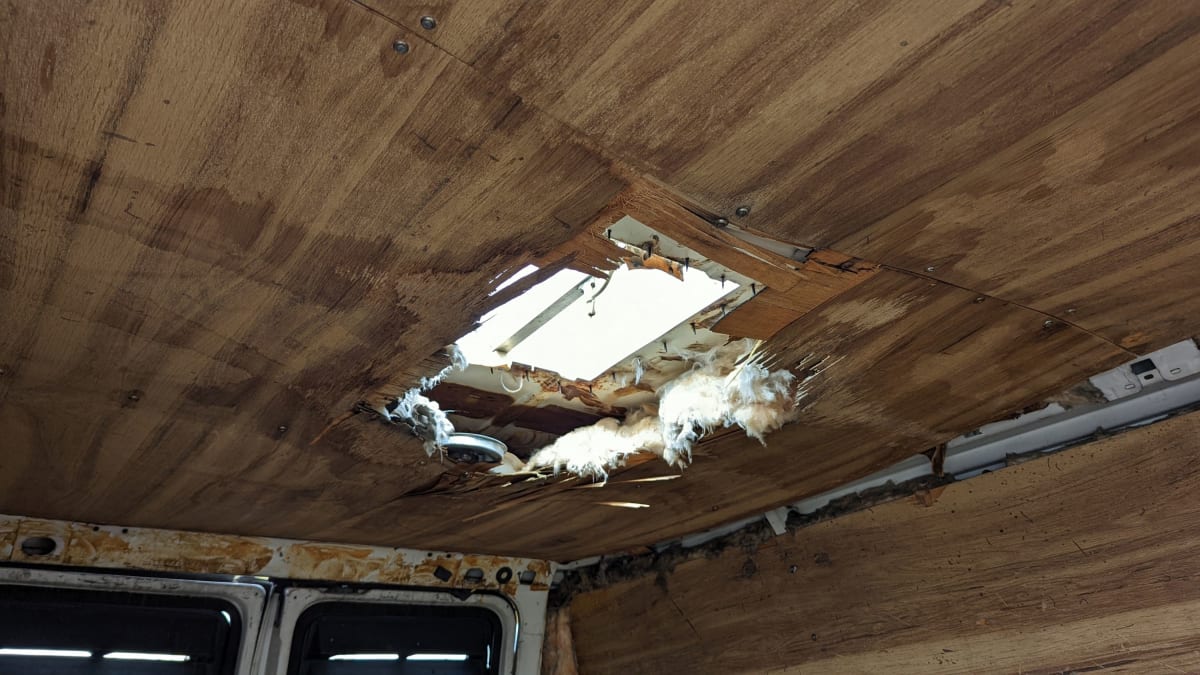
There was an RV-style skylight, but a junkyard shopper bought it.
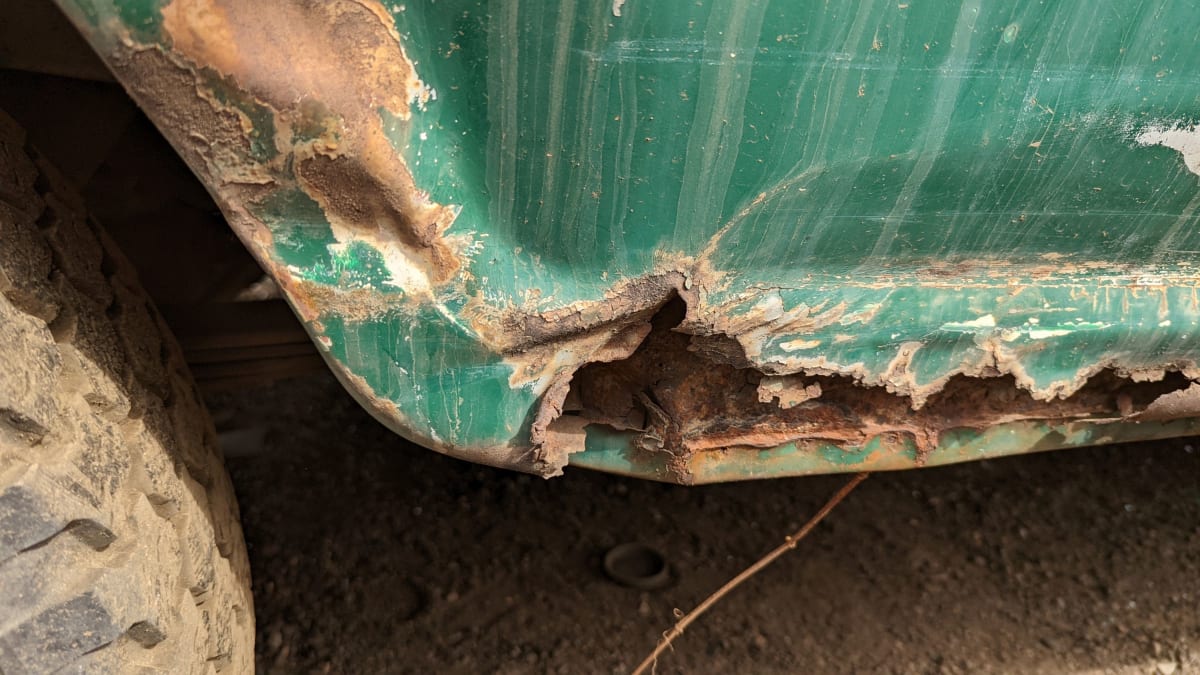
There’s some rust, as you’d expect.
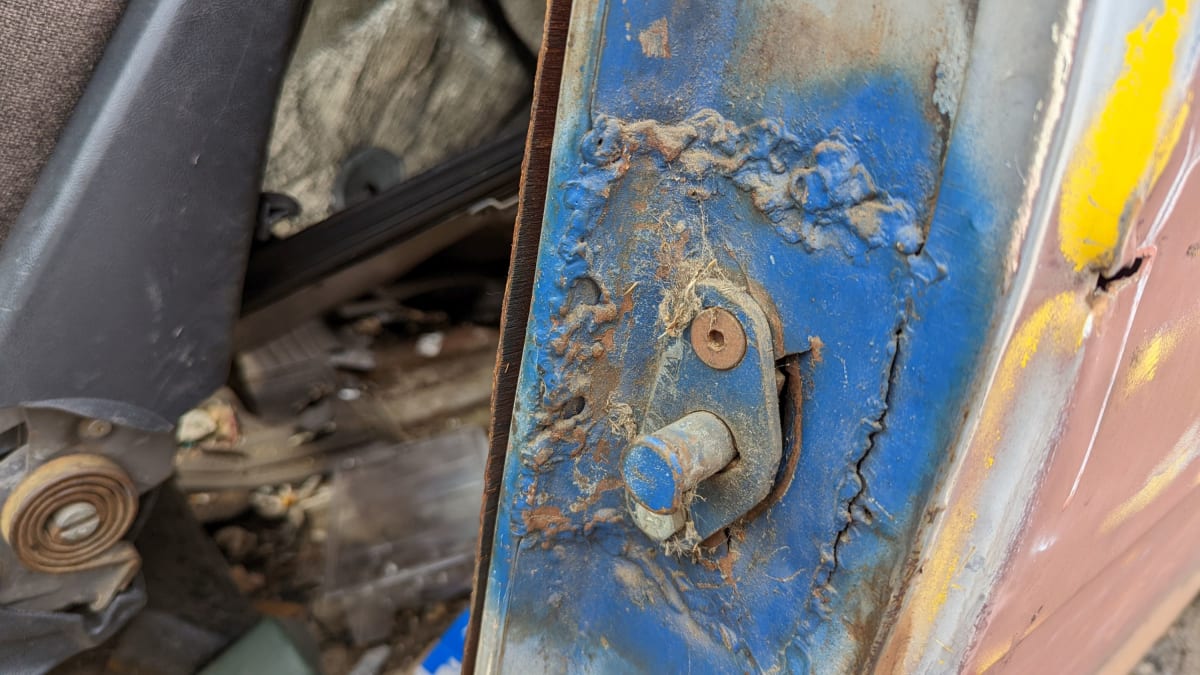
The driver’s door was slammed so many times that the striker post eventually tore out and had to be repaired with some not-so-pretty welding.
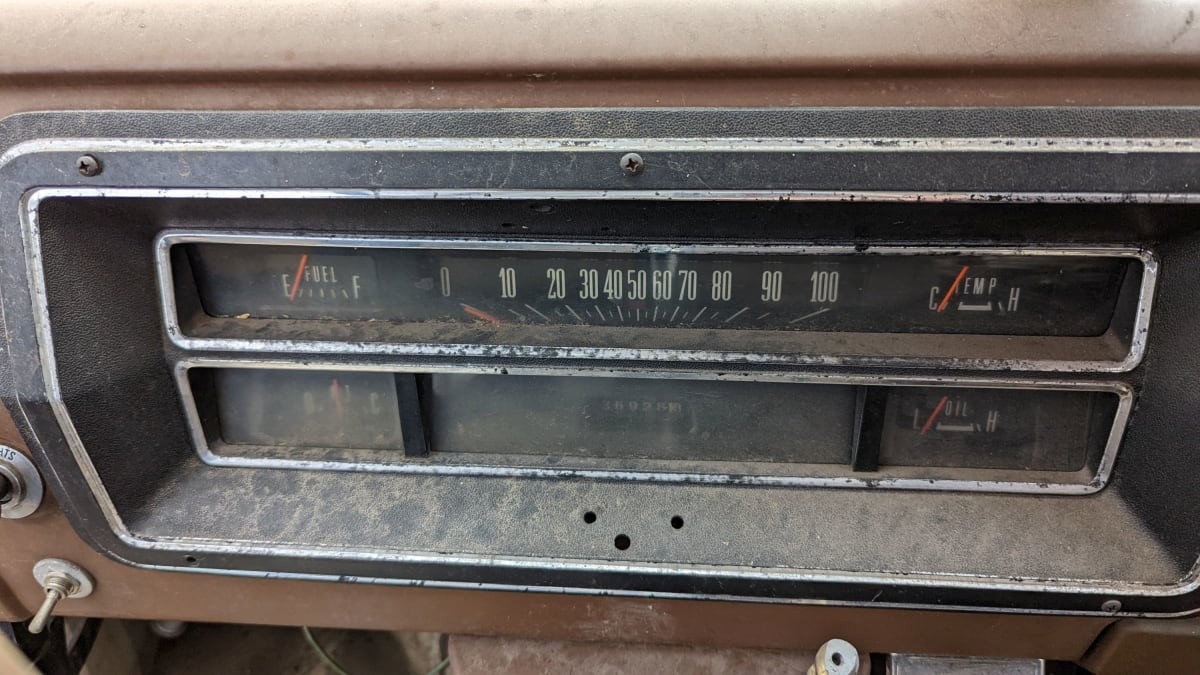
How many miles? The odometer has five digits and isn’t much help, so I’m going to guess a half-million.
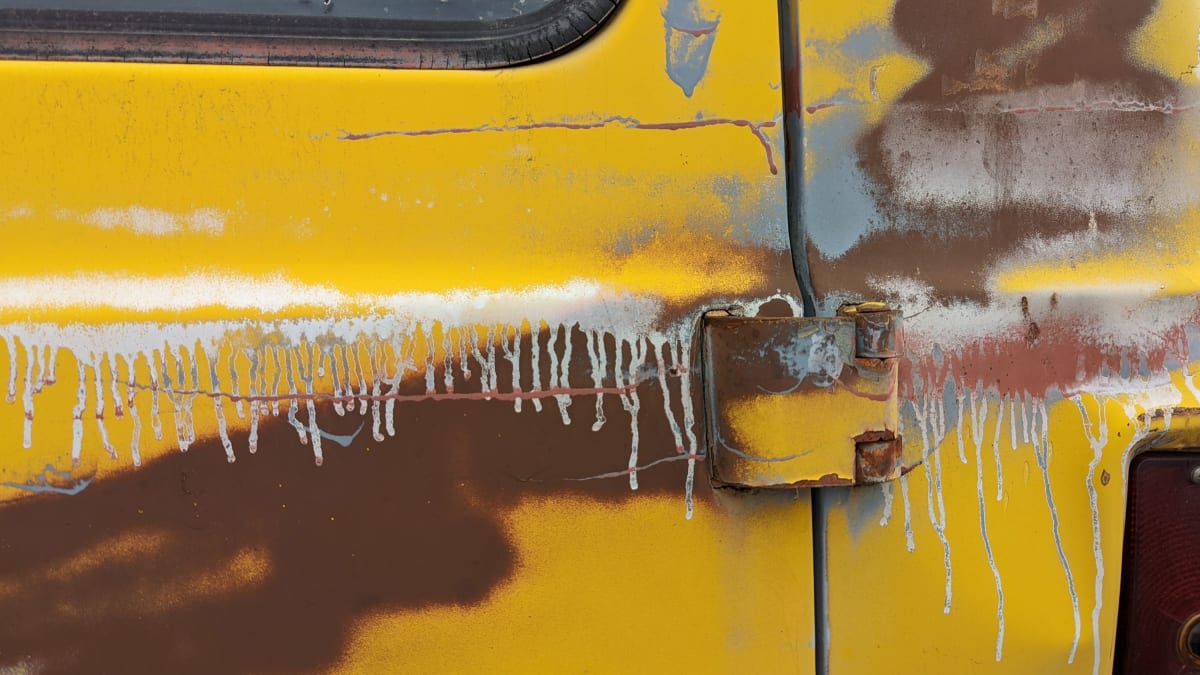
The body has been painted, patched, painted, dented, painted, reshaped, painted, bulked up with body filler, and then painted some more. There must be 150 pounds of paint on this van. You could cut out a random section and hang it on the wall, for a beautiful work of art (I was tempted but my garage is running out of wall space).
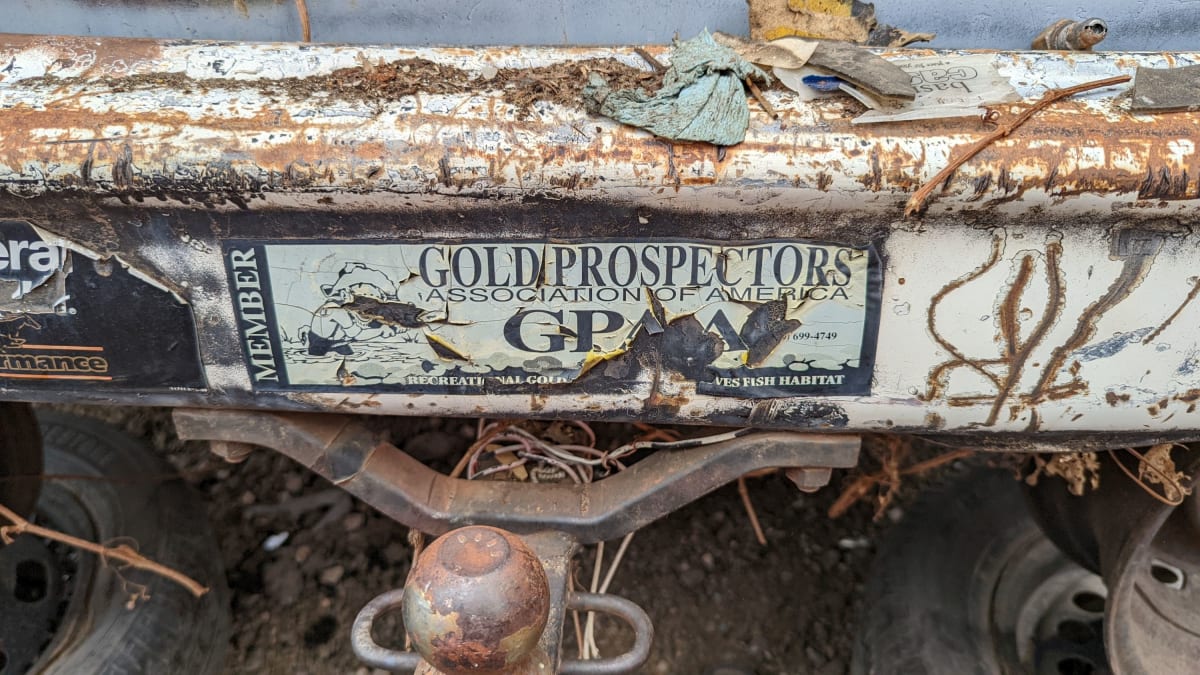
You know a van has stories to tell when you see a vintage Gold Prospectors Association of America sticker on its bumper.
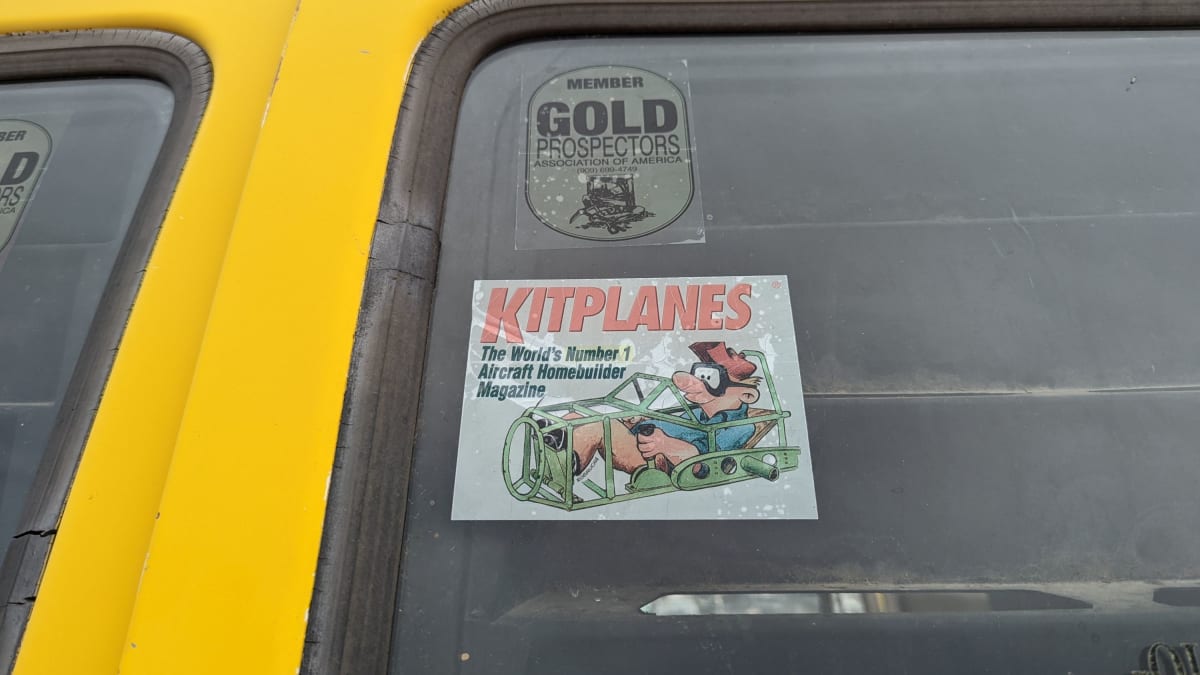
Yes, some fascinating things have been hauled inside.
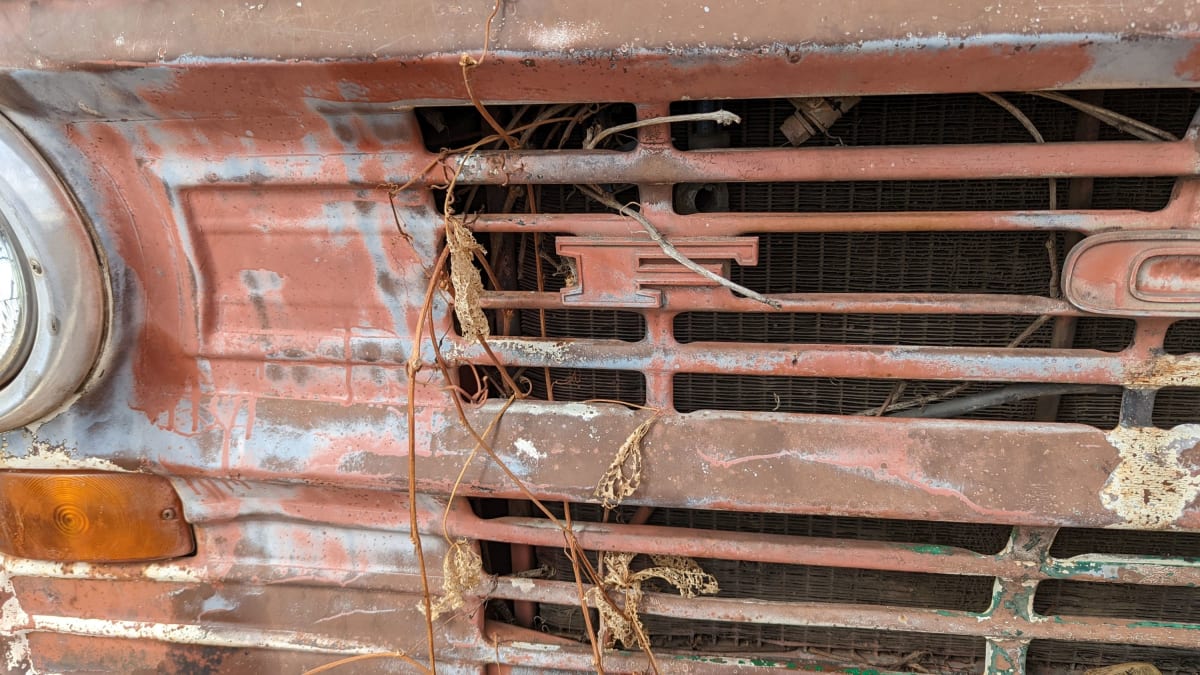
Eventually, it ended up being parked for long enough to have vines grow up into the grille. A 51-year-old two-wheel-drive van with a manual transmission isn’t worth much as a work vehicle these days, and the body is too rough for a custom-van enthusiast to bother with it. Next stop: the crusher.
More payload than any economy van.
Chrysler and GM followed Ford’s lead in moving van engines forward, but not until the 1970s. Look, you can check the oil without getting into the passenger sea!



